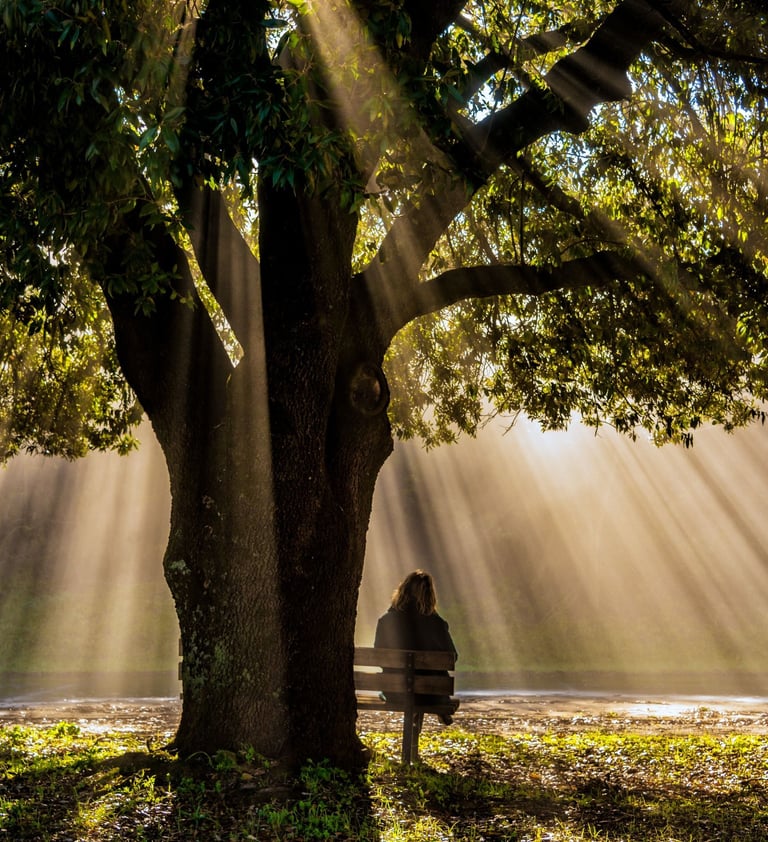Why Some People Don't Have Friends (And It's Not What You Think)
Why Some People Don't Have Friends (And It's Not What You Think). Having no friends is not a character flaw. It usually means someone is dealing with inner problems, tough circumstances, or is choosing a different path for now. The kindest thing you can do is to be understanding and nonjudgmental.
HUMAN BEHAVIORFRIENDSHIP & SOCIAL LIFE
K.N.
8/22/20254 min read


Exploring Loneliness and Friendlessness
Many of us have felt lonely at times. But have you ever wondered why some people don’t have close friends? It isn’t always simple. The reasons can be complicated. We've all been there – scrolling through social media, seeing everyone else hanging out with their friend groups, and wondering "Why don't people seem to like me?" or "How does everyone else make it look so easy?" If you're nodding along, you're definitely not alone.
The truth is, making and keeping friends as an adult is actually pretty tough, and there are tons of reasons why some people struggle with it that have nothing to do with being "unlikeable."
It's Not Always About You
Sometimes it really isn't personal. People get busy with work, families, and their own stuff. That person who seemed interested in hanging out, but then went quiet? They might be dealing with their own social anxiety, going through a rough patch, or just overwhelmed with life.
We live in a weird time where we're more "connected" than ever but somehow lonelier too. Everyone's juggling a million things, and friendship often gets pushed aside without anyone wanting it to happen.
The Social Skills Thing
Okay, let’s talk about something honest. Some people have real trouble with social skills, and that’s fine. Maybe you miss social hints, or you talk a lot without noticing, or you feel awkward when chatting.
Here's the thing though – social skills are exactly that: skills. They can be learned and improved. If you're someone who interrupts a lot, talks only about yourself, or has trouble picking up on when someone wants to end a conversation, the good news is you can work on these things.
The Vulnerability Factor
Making friends requires putting yourself out there, and that's scary as hell. You have to be willing to be a little vulnerable, to risk rejection, to potentially look foolish. Some people have been hurt before, and their walls are just really high. Others are perfectionists who won't risk any social interaction unless they're 100% sure it'll go well (that's impossible).
If you're someone who keeps people at arm's length or only shows your "perfect" side, it might be hard for others to connect with the real you.
Different Social Needs
Not everyone wants the same kind of social life. Some people are happy with just one or two close friends, while others need a large group of friends to feel happy. Some people are introverts and need a lot of quiet time alone between chats with friends. There is no right or wrong way to have friends—it's about what works for you.
Mental Health and Neurodiversity
Let’s talk about something that isn’t talked about enough: how mental health and neurodiversity can affect friendships. This isn’t about making excuses; it’s about understanding that some people have extra challenges that aren’t always easy to see.
Depression can hurt friendships. People may have less energy, feel less interested in things, or get irritable. Because of this, they might cancel plans a lot, misread what others mean, or not have the emotional energy to respond.
Autism Spectrum Disorder presents its own set of challenges in a world built around neurotypical social rules. If you're on the spectrum, you might struggle with reading facial expressions, understanding sarcasm, or knowing when someone wants to end a conversation. This can make small talk feel pointless or tiring, even if they’re not rude or anti-social.
PTSD and trauma can create invisible barriers that are really hard to overcome. If you've been betrayed, abused, or bullied in the past, your brain's alarm system might be constantly telling you that people can't be trusted. You might push people away before they can hurt you or find it impossible to be vulnerable enough for real connection to happen. It's a protective mechanism, but it can be incredibly isolating.
The important thing to remember is that none of these conditions make someone less deserving of friendship – they might just need different ways to be understood and more patience from themselves and from others.
Life Circumstances Matter
Sometimes the reason has nothing to do with personality and everything to do with circumstances. Maybe you moved to a new city and haven't figured out how to meet people yet. Maybe you work from home and don't have natural opportunities to socialize. Maybe you're in a life stage (new parent, caring for aging parents, going through a divorce) where friendship maintenance is just really hard.
The Comparison Trap
Social media makes other people’s friendships look easy and perfect, but that's not reality. Those group pictures don’t show the many hours of planning to make everyone fit together, or that two people in the photo aren’t even talking to each other anymore.
What You Can Actually Control
If you're genuinely concerned about why friendships aren't sticking, here are some things worth considering:
Be truly interested in other people. Ask questions and really listen to what they say. Remember what they tell you and check back later.
Show up every day. Friendship grows from small, regular moments, not big, special acts.
Be yourself, but your best self. You don’t have to be perfect, but being kind, reliable, and respectful goes a long way.
Put in effort. Friendship needs care. Reach out, make plans, and remember birthdays. Check in when someone is going through a hard time.
Be patient. Real friendships take time to grow. Don’t expect to have best friends right away.
The Silver Lining
If you don't have friends right now, it doesn't mean you're broken or unlikeable. It might mean you're in transition, you're being too hard on yourself, you haven't found your people yet, or you're just going through a tough social patch.
Sometimes the best thing you can do is focus on being a good friend to yourself first. Work on the things you can control, be patient with the process, and remember that quality always beats quantity when it comes to friendship. And if you're reading this and relating hard, just know that there are lots of other people out there feeling the exact same way. You're not as alone as you think you are.
Life Is Tough Make It Chillable!
LITMICH © 2025. All rights reserved.










